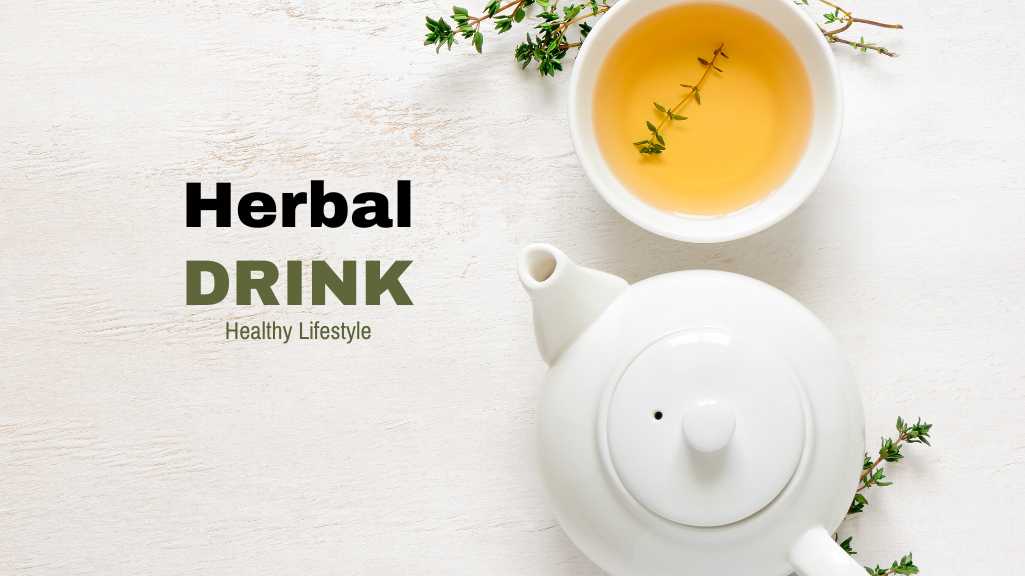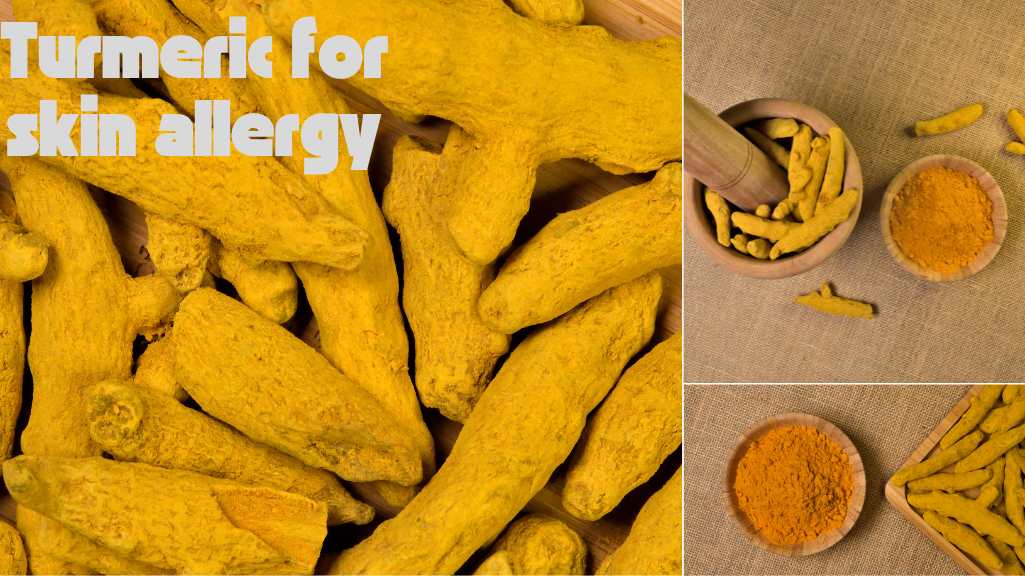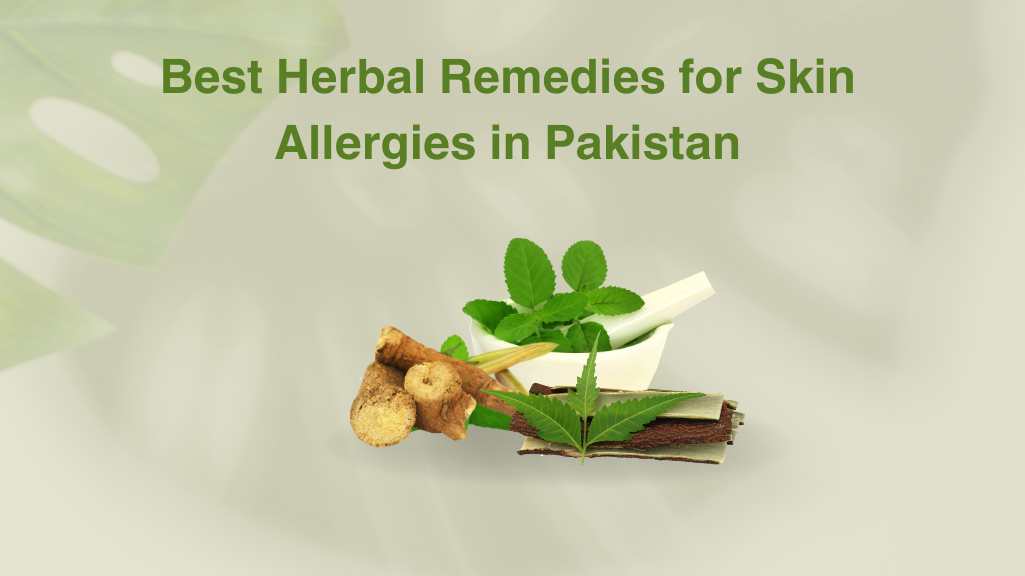Skin allergies are common in Pakistan and can affect people from all walks of life. Herbal remedies for skin allergies one of the popular treatment in Pakistan. The causes can be environmental, interior or due to food bias. Some opt for the conventional method of treatment while others are opting more to herbal remedies which are a more natural way. The following article will guide the readers concerning pot herbs for the skin and explain the significance, advantages, and disadvantages of their usage in Pakistan.
Table of Contents
What Are Skin Allergies?
Skin allergies are conditions that occur in response to elements in the environment, where the immune system targets something perceived to be harmful, such as allergens, resulting in rashes, itching, and swelling. Commonest triggers include pollen, dust mites, certain foods, stress etc. For those who are looking for alternative ways to cure their condition, herbal medicine provides such possibilities without adverse reactions as in the case of therapeutic medications.

The Role of Herbs in the Curing Process in Pakistan
The practice of herbal medicine is very common in Pakistani culture with documented cases in Unani and Ayurvedic medicine detailing various herbal treatment therapies. But besides being able to treat the disease they are also readily available, cheap, and socially acceptable to many hence their increasing preference over other therapeutic options.
Effective Skin Allergy Treatment by Herbs
1. Aloe Vera
- Advantages: Aloe Vera has gained a wide popularity because of its soothing and healing properties. Thus, even when applied to the skin, the symptoms of inflammation and itchiness can be alleviated.
- Instructions for Use: Take an aloe vera leaf and scoop out the gel inside applying onto the affected part only. After 20-30 minutes, wash it off with lukewarm water.
- Side Effects: People who are sensitive to Aloe Vera may have mild rashes.
2. Neem (Azadirachta indica)
- Advantages: Ayurvedic medicine and herbal medicine practitioners have found neem very effective, in fact the best in combating skin ailments, since it is powerful antibacterial, antifungal and anti-inflammatory properties necessary in treating allergies.
- Instructions for Use: Neem leaves can be boiled in water to create a paste or added to oil for external use.
- Side Effects: In most cases, neem is safe, only that for some people they may experience a bit of dryness.
3. Turmeric (Curcuma longa)
- Strengths: Impressive therapeutic properties are possessed also by turmeric (Curcuma longa). Bacterial disorders appear more rarely due to the development of turmeric in the body.
- Instructions for Use: The cream above is slicked onto skin after first mixing some turmeric powder into water or honey to make a paste.
- Side Effects: Many patients have stated turmeric’s side effects as the temporary yellow coloration of skin which would last for less than a day and in some cases also cause skin irritation.

4. Honey
- Advantages: Honey is a great humectant and can draw moisture into the skin. It also prevents any infections that can subsequently occur as it has mild bactericidal effects as well.
- How to use: Use Small amounts of raw honey, apply directly to the affected area and wait for 20 minutes before bathing.
- Disadvantages: Nonetheless, honey allergy can be a serious threat to some people as it causes allergic reactions especially for those who are pollen sensitive.
5. Sandalwood (Santalum album)
- Advantages: Sandalwood is hygienically good and contains wonderful cooling as well because anti-inflammatory properties, therefore that it helps in the case of hotness also infected skin.
- Usage: People use this powder either by mixing it with rose water and put on face, which is a solution for the powder of sandalwood.
- Disadvantages: Sandalwood is largely inoffensive for regular use, although it is expensive and rare to be obtained at its purest.
6. Chamomilla (Matricaria chamomilla)
- Advantages: Due to its anti-inflammatory and free radical scavenging potential benefits, chamomile has been used for the treatment of skin irritation in cosmetics.
- Use: You can also use it as a skin rinse after granting the chamomile flowers in hot water or soak for comfy bath ingestion.
- Disadvantages: Some people are allergic to chamomile and develop skin rashes, more commonly in pollen sensitive individuals.
7. Coconut Oil
- Advantages: Coconut Oil is a powerful moisturizer, and kills bacteria on the skin.
- How to apply: Apply directly on the affected area using a cold pressed organic coconut oil.
- Disadvantages: Not common, but there is a small number of people who may be sensitive to coconut oil.
Benefits of Herbal Remedies
- Organic solutions: Medicate objects are absolutely from natural herbs and shrubs, now not any artificial chemical substances
- Less Side Effects: Herbal treatment in general will not cause side effects and unlike most conventional approaches, it is safer to use.
- Cultural Relevance: There are many herbal treatments considered and accepted in Pakistan as farmer’s medicine – this makes in general its use and trust easier in such society.
- Cost Effective: Herbal medicines are relatively much cheaper than medication manufactured in pharmaceutical factories.

Potential drawbacks
- Allergic Reactions: Some people may show allergic reactions to natural products as well, so it is best first to carry out a patch test.
- Lack of Standardization: There can be a wide disparity in the concentration of active herbal extracts based on the manufacturer or preparation method and hence inconsistent results.
- Interaction with Medications: Some herbal medicines may not scheme well with prescribed medicines and thus prior consultation is advisable when undertaking such herbs.
Who can benefit from herbal remedies?
Herbal remedies that help manage skin allergies would be most useful for the adults and older people seeking for more gentler and organic treatments. These remedies can also be used on patients suffering from long-term skin diseases and have had side-effects due to the orthodox system of medications.
Conclusion
In Pakistan, the use of herbal medicine in the management of skin allergic reactions is encouraging. Such products, with their natural components, also appeal to the users in search of healthy alternatives and perspective which is deeply rooted in the culture. However, these remedies need to be handled with care especially due to the risk of developing contraindications such as allergies, and reactions to treatments. It is advisable to consult a medical practitioner first before commencing any forms of medication especially if you are on medication or have some disorders.
This article details the various herbal medicines that have proven to help treat skin allergy in Pakistan, enabling you to understand how best to care for your skin within reasonable limits. Such natural methods would offer light in dealing with skin allergies alongside remaining within the rich culture of Pakistan herbal treatment.
FAQ’S
1. What are the local traditional medicines one can consider for skin allergies in Pakistan which provide better results than other medicines?
- Answer: Aloe Vera, Neem, Turmeric, Honey and Sandal Wood: all the above mentioned are herbs in Pakistan for skin allergy. The herbs have anti-inflammatory and antimicrobial properties that helps a lot to treat skin complaints of many types in an easy manner without side effects.
2. Is the allergic reaction in skin by herbal remedies?
- Answer: Yes, although herbal remedies employed in any supportive treatment are safe, and there is usually no danger in the use of herbs, allergy is still a possibility in some individuals. It is advisable to do a patch test first before using any herbal remedy over large portion of the skin. In case of any irritations or redness stop usage right away and seek medical attention.
3. How exactly will you use Aloe Vera for the treatment of a skin allergy?
- Answer: For the topical treatment of skin allergies, fresh Aloe Vera gel can be used directly over the itchy zone. Simply scoop the gelatinous substance from the leaf and spread it over the concerned portion. Rinse after about twenty to forty minutes with moderately hot water. Aloe vera helps relieve itching and redness due to its soothing action.
4. Have we, however, overlooked any disadvantages with herbal treatment of skin allergies?
- Answer: That being said, while herbal remedies have their advantages, there are certain disadvantages they predispose a person to some of which include the standardization of potency and allergic reactions. Some herbal remedies have been associated with certain medications; therefore, it is wise to avoid using them without the consent of a physician who may recommend them for you if you do have some medical conditions.
5. Would you make use of both herbal and conventional strategies for treatment of skin allergies?
- Answer: While it is generally safe to use natural remedies alongside conventional medicines, consult an expert before doing so. This is because specific herbs can be contraindicated with particular medications, and herb supplements may neutralize the consequences of traditional treatments. So, for safety and benefit both presence of a healthcare professional opinion is necessary.

